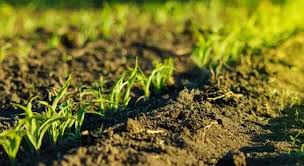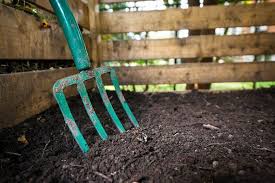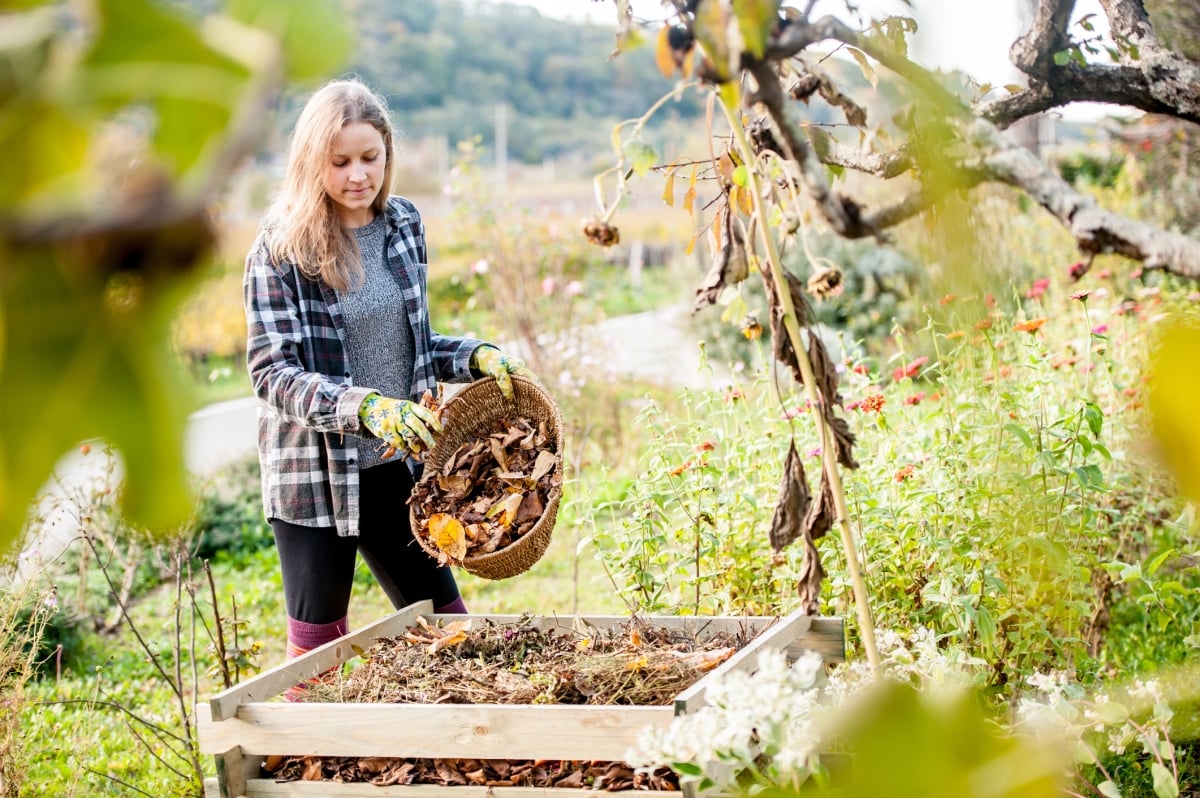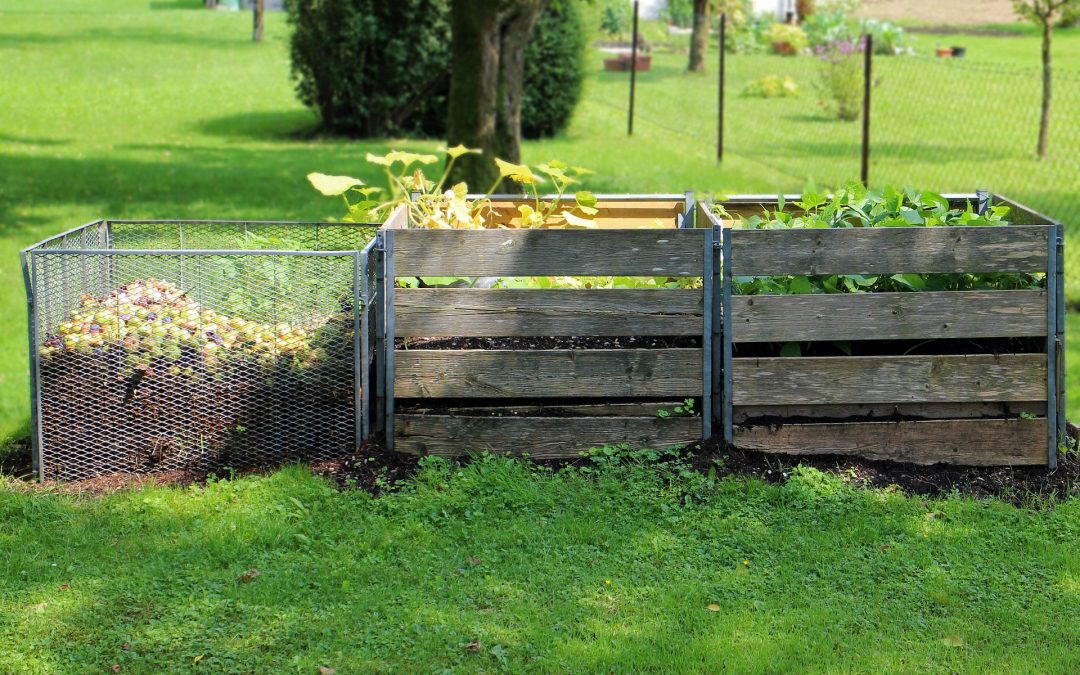Compost is a decayed organic material, used as a fertilizer for growing plants. It takes up to a year or so for the natural compost. But is possible that with the help of microorganisms the organic matter is degraded in 30 to 40 days. Composting is a multistep process and all should be carefully maintained,…


Hotels and Restaurants have their daily food waste. This waste can be converted into organic manure or compost by applying the culture of microbes. The organic waste-degrading-microbes have an ability to degrade organic waste rapidly. All types of organic matter can be decomposed.Many Hotels have their own gardens and lawns, where they can produce the compost which will be of further help for their own trees and plants. The process of Composting can be carried out in a pit which can be dug in an open space in the garden. All the organic waste should be properly shredded. All the available waste should be put into that pit. To reduce high moisture content, saw dust or dry soil should be added. Micro 110 Culture should be added in a Culture to Waste ratio of 1:1000 that is 1 gram of Culture for 1000gms of Waste. The waste is to be turned every alternate day. After 3-4 days, the temperature of the waste will start rising. During this process, moisture level may drop. You can spray water uniformly to maintain the optimum moisture level, which is upto 40%.Process of turning and maintaining moisture should be carried out till you are getting a rise in temperature. In-case of High Moisture Level, the process becomes anaerobic which produces bad odour. To avoid this condition, we must maintain aeration by way of turning the waste. The Micro110 is fungal and bacterial consortia along with actinomycetes and enzymes made for all types of organic composting. It has its unique feature that it is a multicarrier starter culture for composting. It contains calcium carbonate, molasses, rock phosphate, tobacco powder etc., making it a natural Bio-fertilizer concentrate. The Micro-organisms added in Micro110 are having the distinct features such a phosphate solubilization, pH stabilization, cellulose degradation.These microbes have the ability to reduce the population of such microbes which are harmful to the plant by producing antibiotics. Similarly, these microbes can resist the plant pathogens and ultimately help in growth of plant by converting nitrogen and other plant nutrients which are in complex form into simple form so plants can easily intake these nutrients and grow very well. This compost can be used in agriculture lands, plants, gardens and lawns as a value added Bio-fertilizer.

Hotels and Restaurants have their daily food waste. This waste can be converted into organic manure or compost by applying the culture of microbes. The organic waste-degrading-microbes have an ability to degrade organic waste rapidly. All types of organic matter can be decomposed.Many Hotels have their own gardens and lawns, where they can produce the compost which will be of further help for their own trees and plants. The process of Composting can be carried out in a pit which can be dug in an open space in the garden. All the organic waste should be properly shredded. All the available waste should be put into that pit. To reduce high moisture content, saw dust or dry soil should be added. Micro 110 Culture should be added in a Culture to Waste ratio of 1:1000 that is 1 gram of Culture for 1000gms of Waste. The waste is to be turned every alternate day. After 3-4 days, the temperature of the waste will start rising. During this process, moisture level may drop. You can spray water uniformly to maintain the optimum moisture level, which is upto 40%.Process of turning and maintaining moisture should be carried out till you are getting a rise in temperature. In-case of High Moisture Level, the process becomes anaerobic which produces bad odour. To avoid this condition, we must maintain aeration by way of turning the waste. The Micro110 is fungal and bacterial consortia along with actinomycetes and enzymes made for all types of organic composting. It has its unique feature that it is a multicarrier starter culture for composting. It contains calcium carbonate, molasses, rock phosphate, tobacco powder etc., making it a natural Bio-fertilizer concentrate. The Micro-organisms added in Micro110 are having the distinct features such a phosphate solubilization, pH stabilization, cellulose degradation.These microbes have the ability to reduce the population of such microbes which are harmful to the plant by producing antibiotics. Similarly, these microbes can resist the plant pathogensand ultimately help in growth of plant by converting nitrogen and other plant nutrients which are in complex form into simple form so plants can easily intake these nutrients and grow very well. This compost can be used in agriculture lands, plants, gardens and lawns as a value added Bio-fertilizer.

Organic Composting is nothing but decomposition of organic matter with the help of microbes and worms. The microbial reaction can be aerobic, facultative anaerobes or anaerobic. This Decomposed Organic matter, called as compost, is used as a fertilizer for plants andsoil amendments. Compost contents and Uses: Compost is rich in nutrients. It is used in agriculture, landscaping, gardens, lawns, Horticulture, etc. It is beneficial for the soil in many ways, such as a fertilizer, soil conditioner as wella s it adds humic acids and humus. It is a natural pesticide for the soil. It is useful for erosion control, land and stream reclamation, wetland constructions and landfill cover. The composting process requires making a heap of wet organic matter and dry organic matter. A dose of Consortium of Micro-Organisms is to be added for fast decomposition of organic matter. Composting is a process in which moisure is to be maintained and regular aeration or turning should be provided. It is Advisible to shred the organic matter uniformly, so as to provide adequate surface area for the microbes to degrade the organic matter. The Micro-organisms used for composting require some important nutrients or ingredients for their growth and multiplication. Carbon is one of the most important ingredient for the Microbes. It is used by microbes for energy and microbial oxygen process and Metabolism, In this process heat is generated. Hence the brown and dry material is used for composting which is rich in carbon source. Another ingredient is Nitrogen, which is required to oxidise the carbon as well as for re-production. The green waste material contains high nitrogen. Oxygen is required to oxidise the carbon and water is required to maintain the moisture.The microbes can effectively decompose the organic matter and generate heat due to this temperature rises up to 50º to 70º Celsius. During this process, water is evaporated. Hence, certain addition of water is required to maintain moisture level. The most efficient composting process occurs in an optimum Carbon - Nitrogen ratio of about 20:1 to 30:1. Rapid composting is favoured by having C/N ratio ≤30. The fresh grass clippings contain an average C/N ratio of about 15:1 and dry leaves of about 50:1, depending on species of plants. Observation and mixing the equal volume of matter and balanced C/N ratio is required for ideal and effective organic composting. After the composting process ends, there is a gradual fall in temperature and the material becomes dark brown to black in colour. This is the indication that the composting process has ended and the compost is ready for use.

Organic composting is a best way to recycle our organic waste Organic composting is a process by which organic waste material is degraded with the help of various microorganisms. This process is conducted on a particular site or place where the favorable condition can be maintained. Every day the load of waste matter is increasing but it is not treated nor utilized properly. It is a need of the hour to treat this waste to protect our environment. The organic matter or the organic waste can be recycled back to the soil in the form of compost by treating it with microbial innoculum. The Grampanchayat waste quantity is less as compared to municipal waste. It can be treated in a cost-effective way. It is possible to separate degradable and non- degradable material in grampanchayat waste. It requires less time, money, labor etc. Collect the waste every day on a site on the outskirts of the village. Once sufficient quantity of waste is accumulated, make the windrows or form simple rows. Apply the compost culture on the windrows and maintain the moisture by spraying water if required. Simultaneously, turn the windrows so the aeration is provided to maintain aerobic condition. Micro110 starter composting culture The Micro110 is a starter culture for provided by us. It is specially formulated for the composting of all types of organic waste. It is a consortium of fungi, bacteria, actinomycetes and enzymes. In addition to that, the carrier material used for this preparation is calcium carbonate, rock phosphate and tobacco leaves, molasses, wheat bran. All these carrier materials have very good nutritive value. It can be applied in the soil as a biofertilizer due to its natural N-P-K contents. The microbes which are added in this consortium have a very high count. It is more than 10 billion cells per gram. Hence, it performs very rapidly on organic waste. The carrier material provides long-term sustainability to the microbes as well as maintains the soil nutrition value. The Micro110 culture can be mixed in water and sprayed on the windrows of waste or direct powder can be applied by mixing it thoroughly with the help of aerotiller or tractor loader. The Compost Culture is sprayed after the windrow formation. It requires very less dose of Compost culture Micro 110 for composting process, that is, in the proportion of 1gm for 1kg of waste. During the process anaerobic environment is formed in the bottom of the windrows where the gases are generated which has very bad odour. Therefore turning is required thoroughly. Similarly, moisture is maintained at 40 to 45%. Make sure moisture should not be high to 60-70%, due to high moisture airpockets are blocked slows down metabolic reaction. During the composting process temperature rises up to 55-70degree C. It can be measured with the help of thermometer. Process of composting is continued till you get the temperature in the windrows or heaps. The final compost has brown or black colour and the moisture level is around 20-35%. Then it can be packed in bags or directly utilized in agricultural land, gardens, lawns etc.